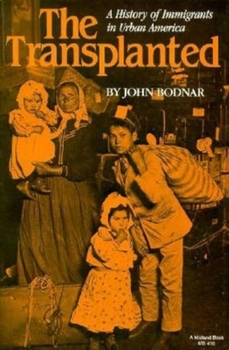The Transplanted: A History of Immigrants in Urban America
(Part of the Interdisciplinary Studies in History Series)
Select Format
Select Condition 
Book Overview
" . . . an excellent broad overview . . . " --Journal of Social History
" . . . powerfully argued . . . " --Moses Rischin
" . . . imaginative and soundly based . . . " --Choice
"Highly recommended . . . " --Library Journal
" . . . an outstanding major contribution to the literature on immigration history." --History
" . . . a very important new synthesis of American immigration history . . . " --Journal of American Ethnic History
" . . . a state of the art discussion, impressively encyclopaedic . . . The Transplanted is a tour de force, and a fitting summation to Bodnar's own prolific, creative, and insightful writings on immigrants." --Journal of Interdisciplinary History
A major survey of the immigrant experience between 1830 and 1930, this book has implications for all students and scholars of American social history.






